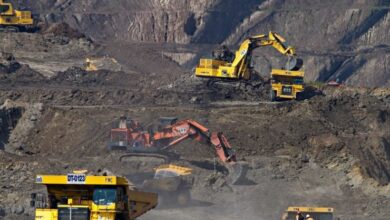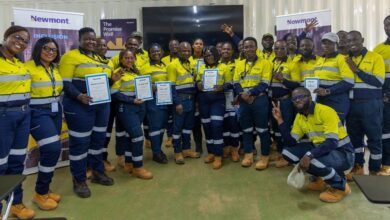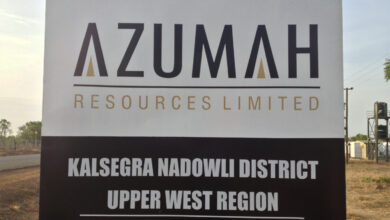ACEP Demands Immediate Halt to Government’s Planned Takeover of Damang Mine

The Africa Centre for Energy Policy (ACEP) has called on government to immediately halt its planned takeover of the Damang gold mine, warning that the move could expose the country to costly legal action, damage investor confidence, and undermine the rule of law.
In a strongly worded statement, ACEP cautioned that the current course of action, which seeks to take control of the mine by April 18, 2025, appears rushed, lacks transparency, and risks breaching both national and international legal protocols on mine closure and asset transfer.
According to ACEP, if government is genuinely acting in the public interest, it must first demonstrate legal diligence, show regulatory compliance, and act transparently to avoid what appears to be an attempt at nationalisation. Already, statements from government officials and the content of the minister’s directive suggest an effort to reclaim the mine, reminiscent of the failed resource nationalisation efforts of the 1970s.
ACEP warned that if the government intends to pursue such a policy shift, there must be clarity on what will be done differently this time to avoid repeating past mistakes that collapsed the industry. The think tank insists that available remedies under the law must guide decision-making, not political will or bureaucratic discretion.
A central issue raised by ACEP is the Minerals Commission’s failure to follow due process in its decision to reject the lease renewal application of Abosso Goldfields Limited (AGL), operators of the Damang mine. Section 191(2) of the Minerals and Mining (Licensing) Regulations, 2012 (LI 2176) provides a clear process for addressing non-compliant applications. The Commission, by law, is expected to notify applicants within five days of any deficiencies and allow them ten days to correct errors or submit additional information. ACEP questioned whether this process was followed before initiating steps to terminate the lease and seize the mine.
The think tank also expressed concern over the handling of mine closure protocols. AGL, according to ACEP, is required to submit a comprehensive exit plan detailing remediation, environmental governance, and settlement of obligations to the state and contractors. These requirements appear to have been ignored. Additionally, though the Minerals Commission announced plans to begin a forensic audit within 14 days of notifying the company of the lease termination, more than a month has passed without any sign of the audit.
ACEP also called for closer scrutiny of the three reasons cited by government for rejecting AGL’s lease extension: failure to declare mineral reserves, absence of a technical programme, and lack of budgetary allocation for exploration.
The organisation notes that AGL has submitted technical reports showing minable resources with an eight-year production outlook, which should be independently verified rather than summarily dismissed. It added that economic tools like the Mineral Reserves Economic Criteria (MREC) used by AGL are dynamic and industry-recognised and should not be misunderstood as proof that no gold exists in the mine.
On the issue of stockpile processing, AGL claims it received regulatory approval from the Minerals Commission. If that claim is true, ACEP asserts, it is contradictory for the Commission to now use that same activity as part of the basis to deny lease renewal. If the claim is false, then the Commission’s inspectorate division failed in its oversight duties and cannot shift the blame onto the company.
ACEP acknowledged Ghana’s right to maximise its benefit from natural resources but insisted that any such effort must be grounded in legality, transparency, and fact-based decision-making. It emphasised that the state must avoid exposing the country to unnecessary international litigation, reputational damage, and the erosion of investor trust.
The Centre concluded by urging government to suspend the planned takeover, return to the table for dialogue, and pursue a resolution that protects Ghana’s long-term mineral wealth while safeguarding the interest of private investors and public institutions.




